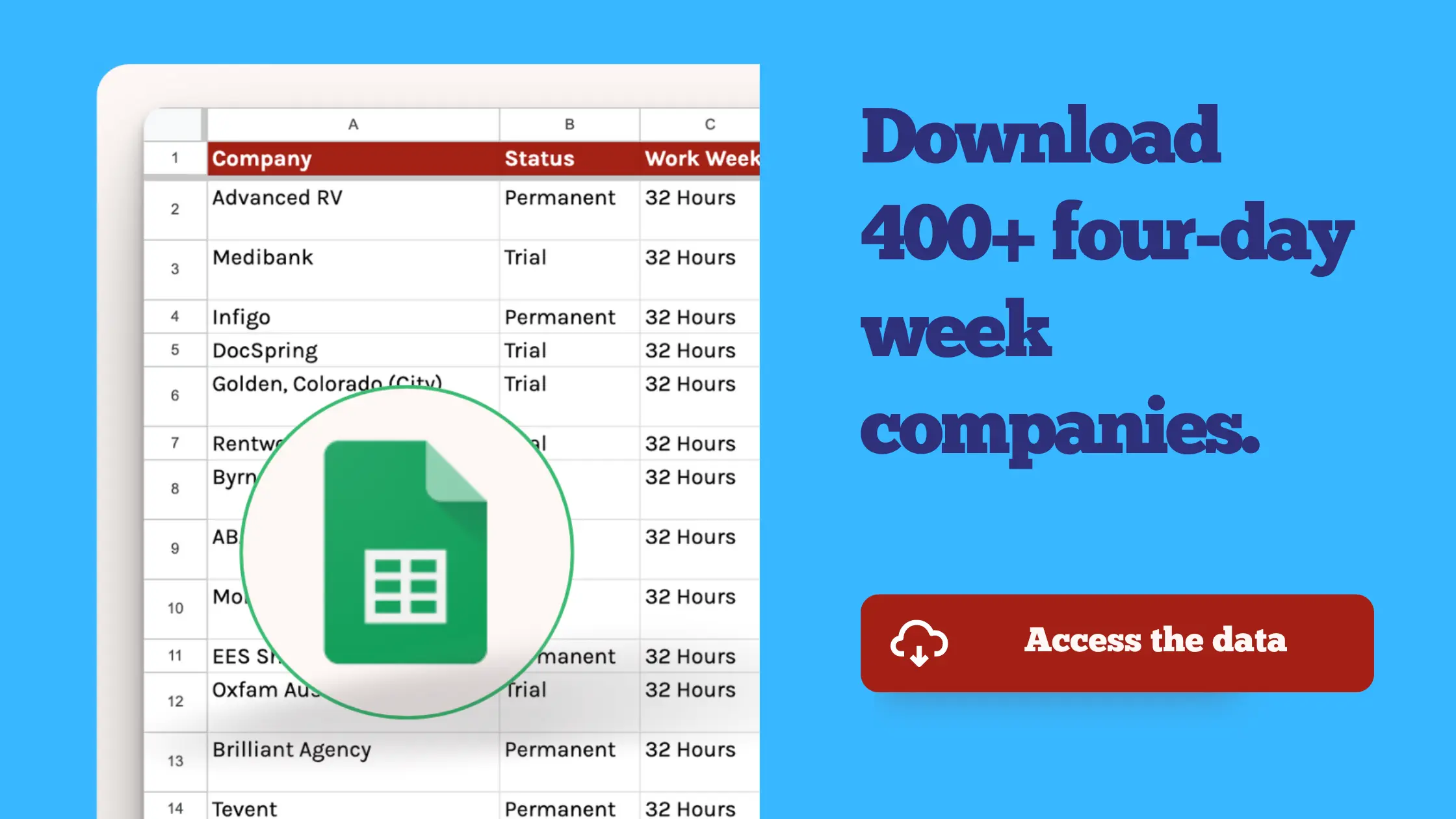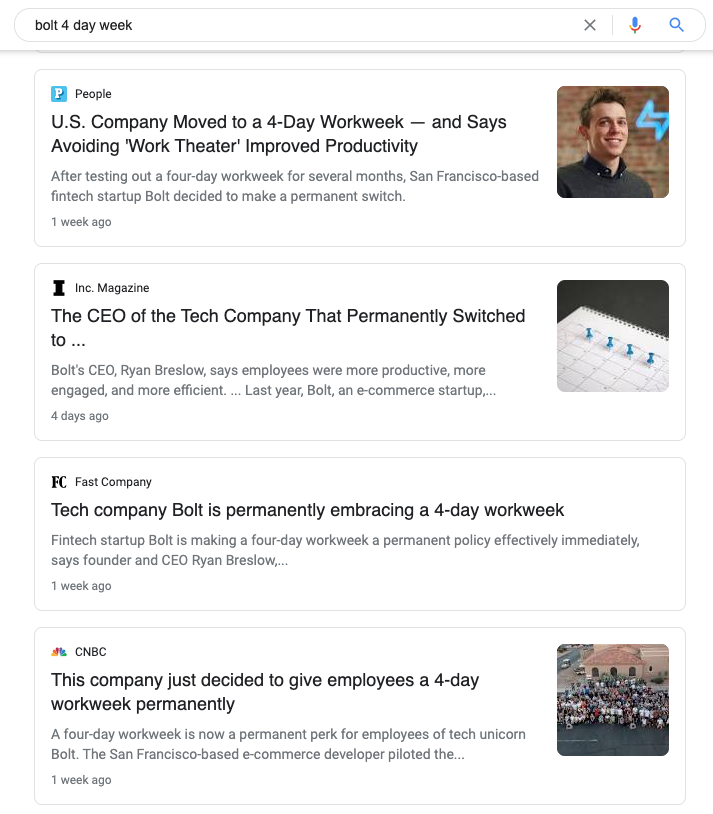22 Four-Day Work Week Benefits I’ve Experienced
In January 2020, a fully remote company I run, Nectafy, implemented to a four-day work week. Therefore, I’ve run a company that operates on a four-day work week and personally worked the schedule myself as an employee.
I’ve enjoyed the benefits of a four-day work week as an individual in my daily life and as an operator of a business running on the alternative schedule.
- Jump to benefits for the individual
- Jump to benefits for the company
These are the four-day work week benefits I’ve experienced from each side. Jump to the section
Four-Day Work Week Benefits For The Individual (Employee)
1. Mathematical work-life balance (as in 50/50)
I did the math for 2021.
- At a four-day work week company you’re off 3 out of every 7 days (156 weekend days off)
- Add in a typical amount of holidays like we had (15 holidays)
- Then, add your additional vacation days or time off (15 PTO days for me)
So throughout the year, I worked 179 days (49%) and took off 186 days (51%). That is true, mathematical work-life balance.
2. Increase in happiness
Your typical Thursday night turns into a Friday night with a four-day work week. Sunday is your third day off rather than your second, making you more refreshed and ready to go. More time opens up to pursue other hobbies or pursuits outside of work. And inherently, you’ll spend more time with family and friends.
Reclaiming an entire day of work and shifting it to personal will certainly help your happiness, even if you love your job.
3. Fewer meetings
When we implemented our four-day work week two years ago, we immediately cut all meetings in half.
- One-hour meetings became 30-minute meetings
- 30-minute meetings became 15-minute meetings
- Weekly turned into bi-weekly meetings
Ever heard of Zoom fatigue? Just about all of us are happier in our work with fewer meetings.
4. More appreciation for the company and work
A four-day work week sends important signals to your team. You’re telling employees that you trust them, you believe their health is important, you understand they have a life outside of work.
Inherently, this builds a new level of trust between the employees and the company (or management team). As a result, you appreciate the company and your work more making for a better environment.
5. More paid time off (PTO) days
Your time off from work compounds if you have a four-day work week. Let’s say your company offers 15 days off per year, but you no longer work Fridays. Now, if you’d like to take a full-week off for vacation, you’d only request four days off rather than five.
6. More time away from work (to help your work)
Having time away from work helps your work. I feel more refreshed and ready for the work week to begin after three days away from work.
Taking time off pays, literally. A study from Oxford Economics found, “People who took fewer than 10 of their vacation days per year had a 34.6% likelihood of receiving a raise or bonus in a three-year period of time. People who took more than 10 of their vacation days had a 65.4% chance of receiving a raise or bonus.”
7. More time for personal use & development
When you go from a five-day work week to four, you open up a new type of day altogether. It is the weekend, but the rest of the world is still at work or school that day. It’s a unique opportunity to work out, read, listen to podcasts, learn a new hobby, or more. This benefit is one big bucket of how you can use your newfound time:
- Time with family and friends
- Time for hobbies
- Time for personal development
- Time for health and wellness
- Time for travel, and more
8. Opportunity to build a secondary income with the extra time
In #7, I categorize the benefit as time available for use outside of work. If you’d rather continue working during that new day off, you now have an opportunity to build a secondary income stream or remote side hustle.
Remember I mentioned that Nectafy runs on the four-day work week? We take Fridays off. That extra time has enabled me to start this company, Buildremote. In fact, I’m writing this on a Friday.
At Nectafy, most of our employees have some side business they’re developing: we have a photographer, a screenwriter, a college essay editor, and our founder runs two businesses (each on a four-day work week). To the benefit of the company, everyone brings new ideas from their side businesses to Nectafy. It makes for a more well-rounded team.
9. Lower cost for childcare
My wife and I both work from home and have two toddlers. It’s a juggling act.
Without me working on Friday, it frees up my wife to get an extra solid block of work time. Depending on how we’ve handled it at different points, that either moves us from four days of childcare to three or from three to two.
10. Increase in mental and physical health
More sleep, more time to work out, more time to cook healthy food. Shifting time from work to wellness improves your overall health and mental acuity, and in turn, makes you more able function highly while at work. The positive feedback loop improves your overall quality of life.
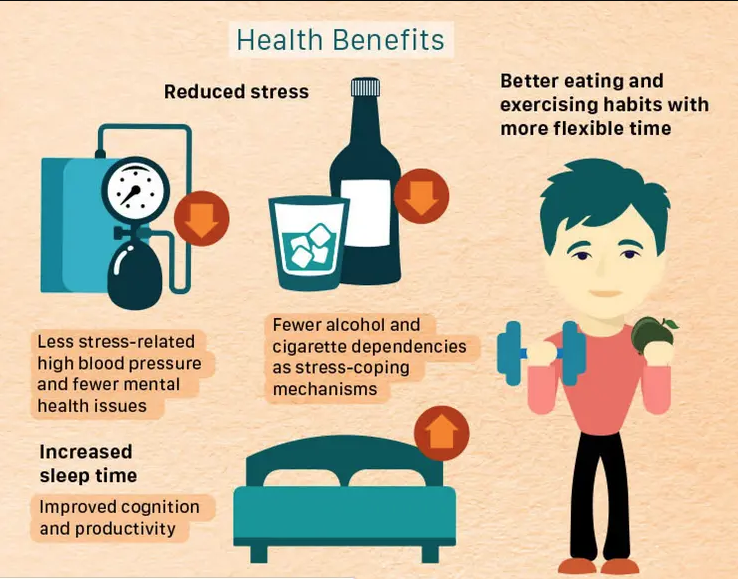
11. Less sitting (so you can live longer?)
According to a Yale Medicine article from 2019: “Last year the Annals of Internal Medicine published a study of 8,000 adults that showed an association between prolonged sitting and a risk of early death from any cause.”
Extended periods of sitting doesn’t sound good for your health. You could get a sit-stand desk to help (I have a FlexiSpot Comhar Pro), or a better office chair to help with your posture.
But even still, you should find ways to lessen the amount of sitting. Structurally cutting out work time through a four-day work week helps.
12. More efficient, which is more fulfilling
If you go from 40 to 32 hours per week and still get the same amount or more done, you’ve made yourself more efficient. You’ve removed the inefficient activities and retained or improved the valuable ones.
Simply being more efficient makes for more fulfilling and satisfying work. When I have an unproductive day where I can’t get good focus, I don’t feel great after. When I jam-pack a ton of value into a three-hour period, I feel great.
Looking for a 4-day work week job?
Take a look at Flexjobs, the world’s biggest job board dedicated to remote and flexible work. You’ll find dedicated filters to “flexible” and “alternative” schedules.
Search for 4-day work week jobs.
Four-Day Work Week Benefits For The Company
13. Unique benefit to attract talent
If you have something people want, you’ll attract more people to your offering. The four-day work week is something people want.
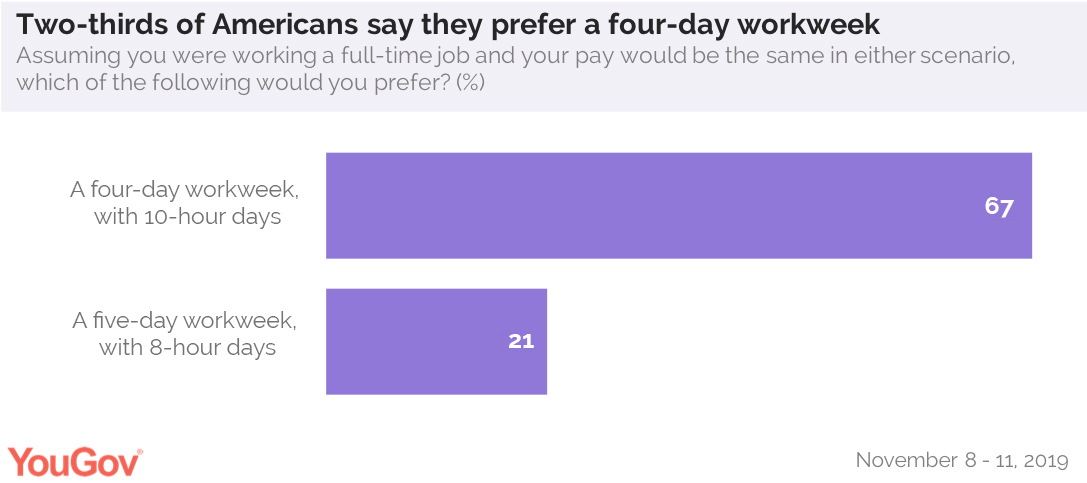
Much like unlimited time off, high salaries, bonuses, good healthcare… a four-day work week is a supercharged benefit to most people. Therefore, you’ll be able to attract more people to your job openings as a result of offering the alternative work schedule.
14. Employees will recommend your company as a good place to work
Referrals are the best source for new hires. If your best people bring in their friends, you are likely to end up with more good people. Therefore, companies need to find ways to make their organization a great place to work. The four-day work week helps.
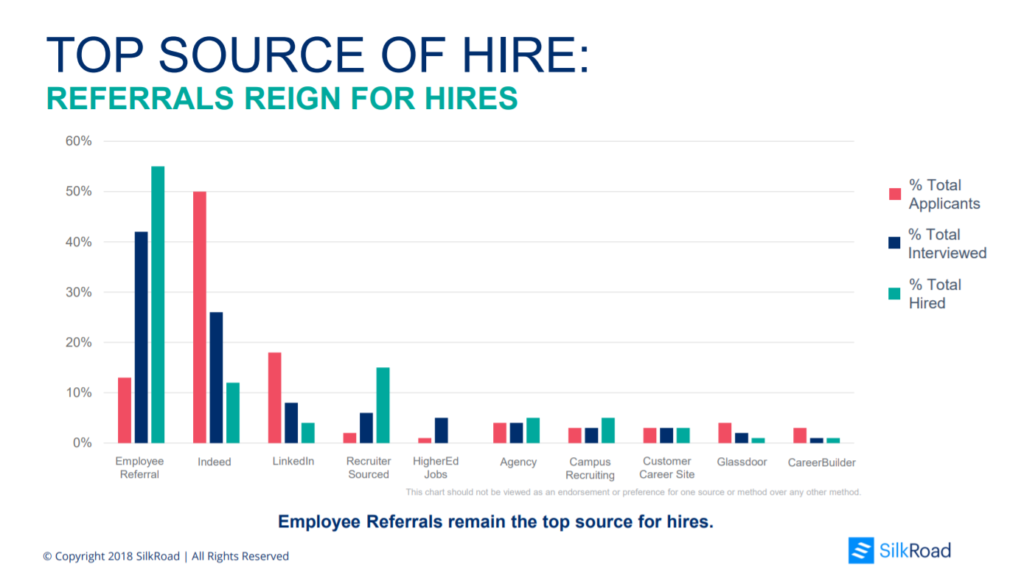
15. Increase in employee retention
At Nectafy, we have yet to have an employee leave the company since implementing the four-day work week. There are not that many four-day companies out there right now (although it’s growing fast), so the environment and work-life balance at Nectafy is constantly attractive. It’d be hard to switch from a four-day company back to a five-day.
This gives your organization an edge in retaining talent.
16. More productive workforce, potentially
After two years on a four-day work week, I would not declare that we are more productive. The way I see it, we’re about the same on productivity and profitability as we were at 36 hours per week (our original schedule). But I find that to be amazing in itself. We cut out 10% of our work time with no hit to productivity.
There are studies that have found people to be more productive working fewer hours. The most famous one is from Microsoft Japan. According to NPR, “Workers at Microsoft Japan enjoyed an enviable perk this summer: working four days a week, enjoying a three-day weekend — and getting their normal, five-day paycheck. The result, the company says, was a productivity boost of 40%.”
But keep in mind, I do not think you can trial a four-day work week.
17. Happier employees with less burnout
Take a look at the first section of this article where we go through 12 benefits for employees. All of those reasons make for happier people at your company. Happier employees do better work, have better lives, and build a stronger culture.
18. More automation, less busy work
By questioning the amount of hours needed for work, you shift the collective mindset of your company. Before, your culture could’ve been about showing each other how many hours you work. After, you are showing each other how efficiently you can work.
Once you switch to a four-day work week, you start to question each meeting… is it worth your time? You start to wonder if certain repeatable tasks can be automated. You look for opportunities to redo processes to cut out time. That mindset shift may be as important as the extra day off itself.
19. Less fake work for appearances (and better team trust)
Let’s be honest. Friday from 2 – 5 PM is not an efficient block of time to work.
In offices, people hang around for appearances as to not appear lazy. For remote teams, people stay on Slack in case someone sends a message… but they aren’t deep into useful work.
Those appearances of fake work are a negative for the culture of the team. By condensing the work hours in a week, you are more likely to remove those fake work sessions and build more trust.
20. Cost savings (for companies with offices)
If you go from five days to four, you’ll cut down on utility usage in your office. That saves you money.
21. A switch in mindset from hours to output
They say, measure what matters. If you’re measuring the success of your employees by how many hours they work, you’ll get more hours but not necessarily better results. If you measure actual output that contributes to the health of the business, you’ll get better output.
By switching from a standard 40-hour work week to a four-day, 32-hour work week, you change how you judge and analyze performance.
22. Press coverage
If you do it right, the internet will love to hear your story about switching to a four-day work week. Here’s an example from Ryan Breslow, the founder and CEO of Bolt. Bolt permanently switched to a four-day work week and Ryan shared his findings.
Needless to say, the press ate it up.
Should you implement the four-day work week?
I’ve operated a four-day work week company for two years, and therefore, also worked the schedule personally as well. It’s been an undeniable improvement to my own life and to the health of the company.
If you’d like to learn more, I recommend reading how we implemented the four-day work week at our company.

